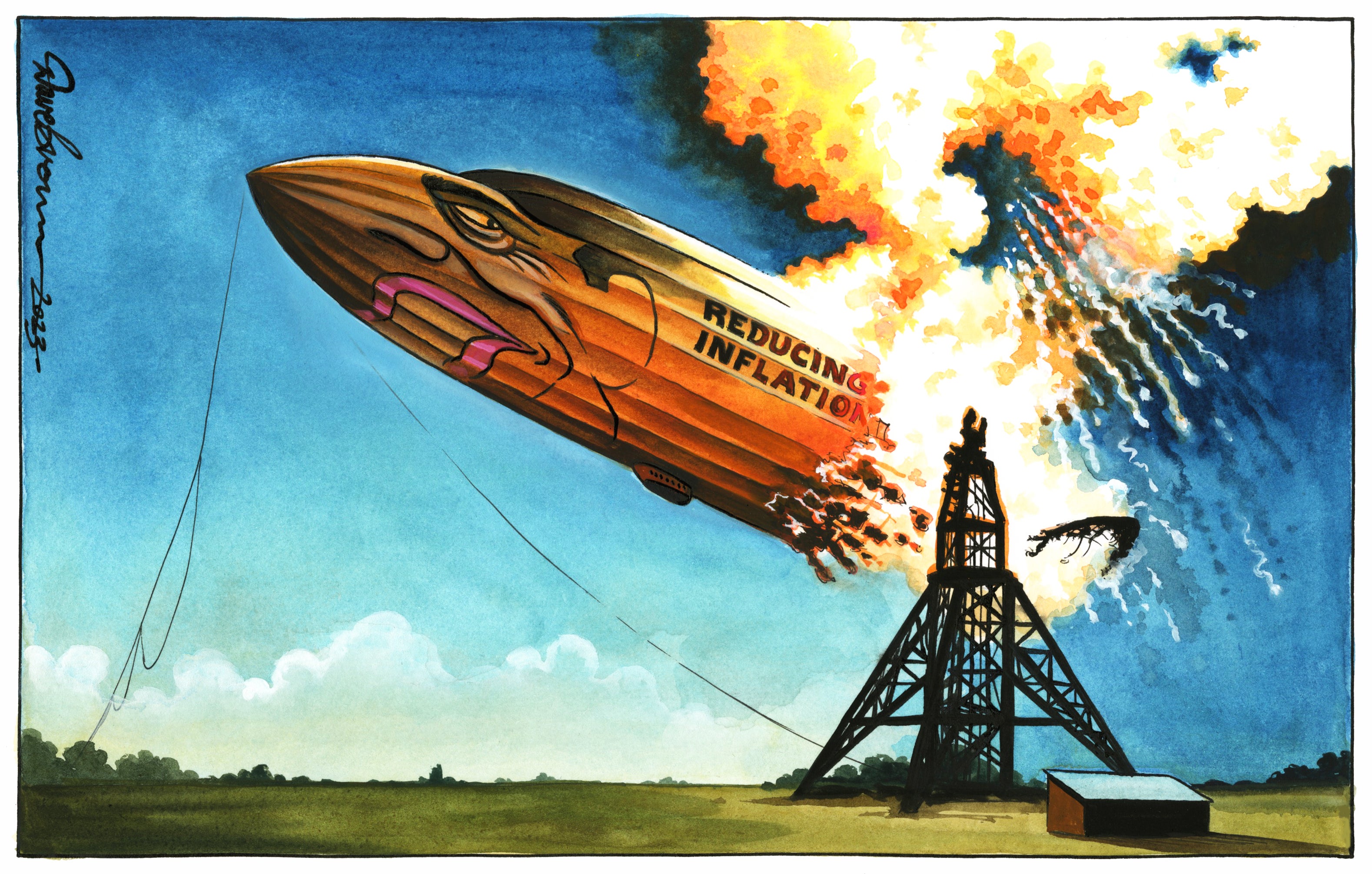The government refused to take the blame for rising inflation. They can’t take credit or comfort now it’s falling
Editorial: 2024 will be at best a year of meagre economic growth, with still relatively high inflation, unemployment edging upwards and muted business investment – bad news for an election year

The prime minister was busy on Twitter/X yesterday. Rishi Sunak, having had his holiday spoiled by a disastrous “small boats week”, was understandably keen to hail two great national achievements – a reduction in the rate of inflation and the Lionesses’ splendid victory over Australia in the Women’s World Cup.
Without wishing to be sour, it’s fair to say that Mr Sunak didn’t have that much to do with either. It is reasonable to suggest that, as the government refused to take any blame for inflation climbing so high, they should not now try to cash in on its decline.
Still, fairness demands that due credit is granted to Mr Sunak and his chancellor, Jeremy Hunt, for rescuing the public finances from the ideologically crazed Truss-Kwarteng experiment almost a year ago – and for maintaining a fairly tough stance ever since.
The resumption of normal relations between the Treasury and the Bank of England has assisted in the management of the economy, though that isn’t saying very much. Fiscal policy has supported monetary policy as the Bank has struggled to get a grip on inflation. But the significant reductions in recent months have had less to do with either fiscal or monetary policy, and more to do with simple arithmetic.
The huge increases in the cost of food and energy, themselves triggered by the war in Ukraine, have worked their way through the system, and because there have not (yet) been comparably steep rises in such costs, the increase in the index of prices has naturally settled down to a lower rate.
Barring any unforeseen developments, that means that inflation should continue to fall markedly in the coming months, simply because past price rises drop out of the calculations.
Even so, the latest annual rate of 6.8 per cent is still startling by the standards of recent decades. It is still way above the 2 per cent official target – as opposed to Mr Sunak’s arbitrary political target of 5 per cent by the end of the year. And the outlook for inflation and the economy thereafter is poor.
The latest data on wage growth and services inflation – both stronger than the Bank had expected – points to a near certain rate hike next month, to 5.5 per cent and then on towards 6 or even 7 per cent, the highest since 1998.
So Mr Sunak would be wise not to boast too much about achieving one of his five key priorities for 2023, as now looks likely. Because wages, and thus business costs, are still going up so quickly, inflation is now endemic in the system – the “wage-price” spiral so rightly feared by the authorities.
In other words, if inflation does come down to about 4 or 5 per cent, it is likely to be stuck there while the Bank of England’s regime of raising interest rates shows signs of success on a timeframe of about 18 months, such are the variable leads and lags in the transmission of monetary policy.
Put plainly, it means interest rates and mortgage bills may continue to climb and stay high for much of the next year – because the Bank doesn’t see inflation going as low as 2 per cent before 2025.
That, in turn, means that 2024 will be at best a year of meagre economic growth, with still relatively high inflation, unemployment edging upwards and muted business investment. The housing market looks set for a period of stagnation and wage rises should start to come down.
A shallow recession certainly cannot be ruled out, but whether the economy grows or shrinks marginally, it will feel to most people that there isn’t much money around.
Given that 2024 is almost certainly going to be an election year and fought against a miserable economic backdrop with Brexit signally failing to “unleash Britain’s potential”, there probably won’t be many votes around for Mr Sunak and his party – not even if the Lionesses win the World Cup.






Join our commenting forum
Join thought-provoking conversations, follow other Independent readers and see their replies
Comments